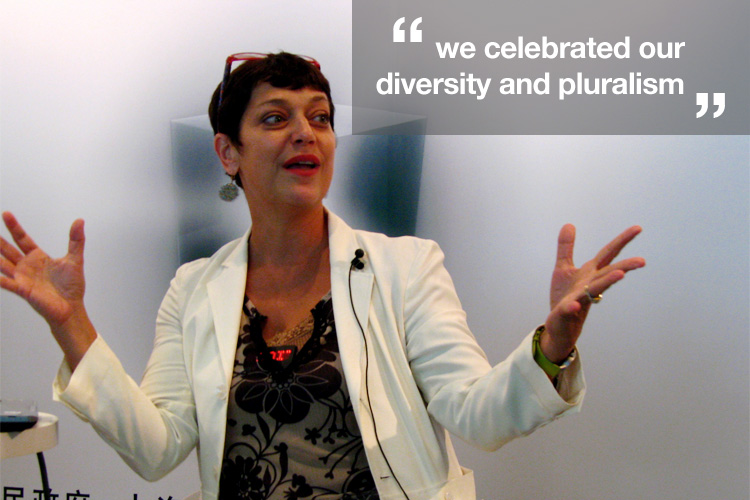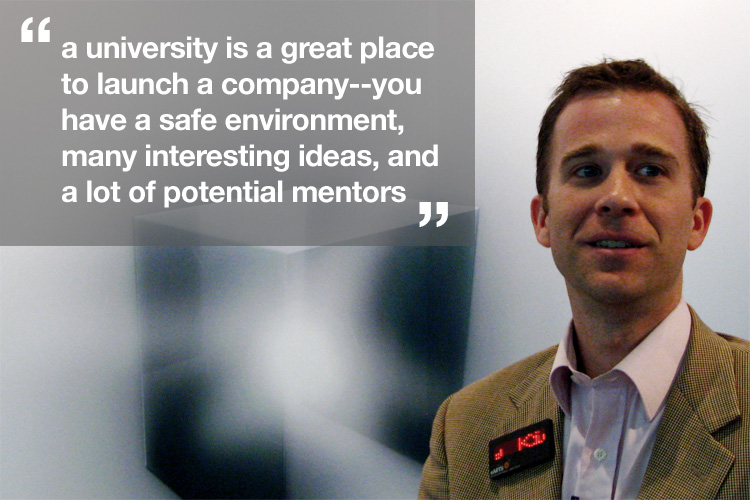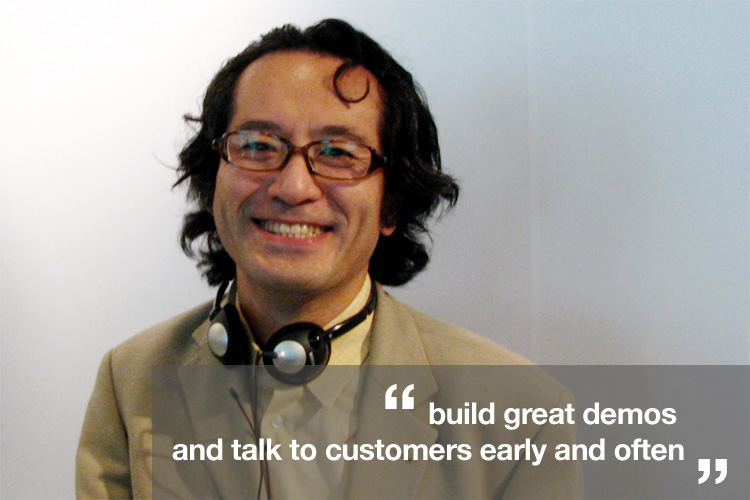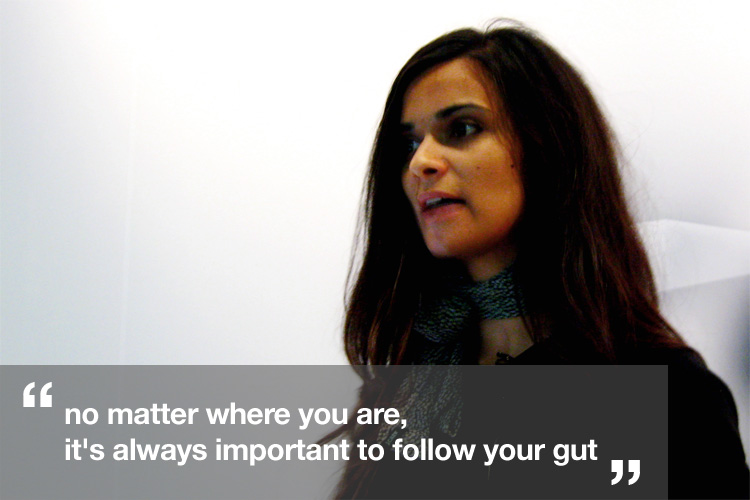back Becky Bermont

"Many West coast innovators are displaced from other parts of the world and are more willing to cooperate. East coasters are susceptible to an entrenched society that is less inclined to horizontal collaborations."
Becky is the Director of Sponsor Management and Co-Head of Research Strategy at the MIT Media Laboratory. She helps to lead the interaction between the Media Lab and its base of industry sponsors, comprised of such corporate leaders as Target, Google, and IBM.
back Idit Caperton

"Throw a bunch of us anywhere in the world and we’ll find it rather fun and comfortable, especially if there are digital art installations and interesting architecture nearby. No matter how old we are now or when we’ve attended the Media Lab, no matter what we do for living—our thinking style, work style, presentation and expression style, our choice of answers to key questions—somehow demonstrate a great set of commonalities."
Idit is the founder of MaMa Media, an Internet media company focused on fostering creative learning skills for children online.
back Cory Kidd

"It may be difficult to be a student and run a company simultaneously, but figuring out how to take advantage of that gives you a great head start."
Cory is the inventor of Autom, a sociable robot system designed to help users lose weight.
back Philip Liang

"I don't think I have ever met a single entrepreneur who has not failed. Even Google has been wrong."
Philip is the founder and Chairman of SNiFLabs, which makes a social networking technology for dogs that allows pet owners to interact through their pets' social networks.
back John Maeda

"Becoming an autonomous creative person grants you the freedom to choose what you do or do not work on."
John is a world-renowned graphic designer, artist, and computer scientist at the MIT Media Laboratory where he acts as Associate Director of Research and Head of Research Strategy. He has pioneered the use of the computer for people of all ages and skills to create art, and is a pioneering voice for "simplicity" in the digital age.
back Justin Manor

"A big part of our business model is to maximize the satisfaction we get from our work. This means telling a lot of potential clients 'Thanks, but no.' Many organizations that solicit us for work want a carbon copy of one of our previous designs, and we shy away from these requests. While we could refine our process on a single idea and squeeze more profit by mass producing 'a product', we feel more rewarded by tackling new design problems and inventing new gizmos with every project."
Justin is a designer at Small Design Firm, which creates interactive, dynamic graphical applications. They were selected to design an installation for the Nobel Peace Center in Oslo, Norway.
back Fumi Matsumoto

"If you are selling something that is new, you need to invest in making a good demo—something that can tell a story about your company and products in a visual, emotional way. Like all good stories, it should have an arc and a hook. It should communicate the vision, and not the current status of the product. Words and business plans can only convey so much. The Media Lab really did a great job of teaching me this!"
Fumi is a Co-founder and CTO at Allurent, a technology company that develops creative eCommerce solutions for online retailers.
back Gauri Nanda

"The Chinese entrepreneurs are limited by their government in ways that us Americans do not understand. But I think it's always important to follow your intuition and not always listen to how others think. Even in the US, I was told I couldn't do what I had set out to. But a year and half later, I made it happen."
Gauri is the founder of Nanda, the company that sells "Clocky", an alarm clock that runs away from you. This product was a runaway success in the US during the 2006 holiday season.
back Rebecca Xiong

"I'm impressed with the land developer who came up with the idea of creating the entrepreneur zone, centering it around the university, and working with the Chinese government. I hope more folks from the Media Lab will take advantage of this opportunity and maybe even start collaborations or businesses there."
Rebecca is the founder of Going.com, an event-based social networking site for several cities in the US. Going.com just surpassed 500,000 users and received its second round of venture funding.